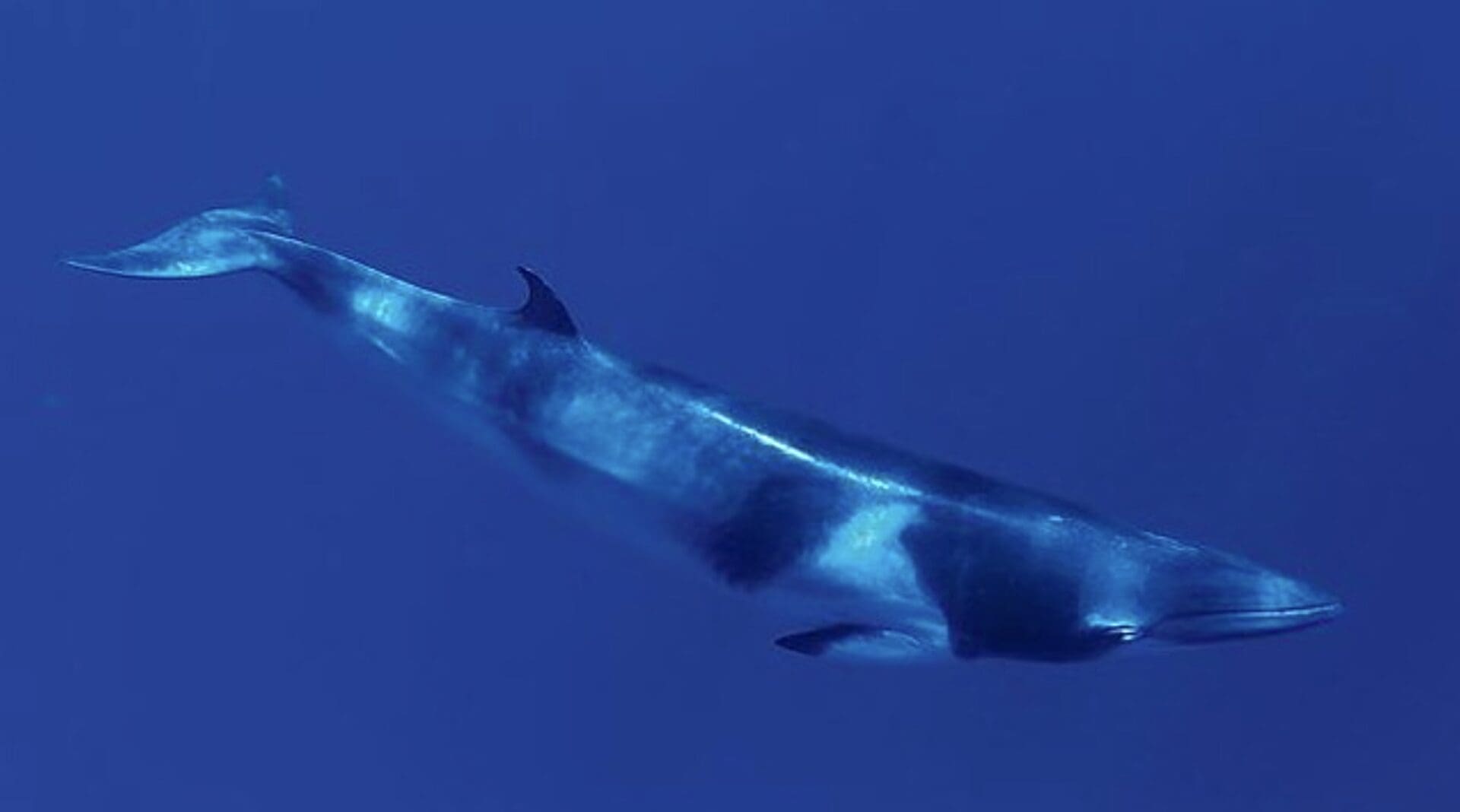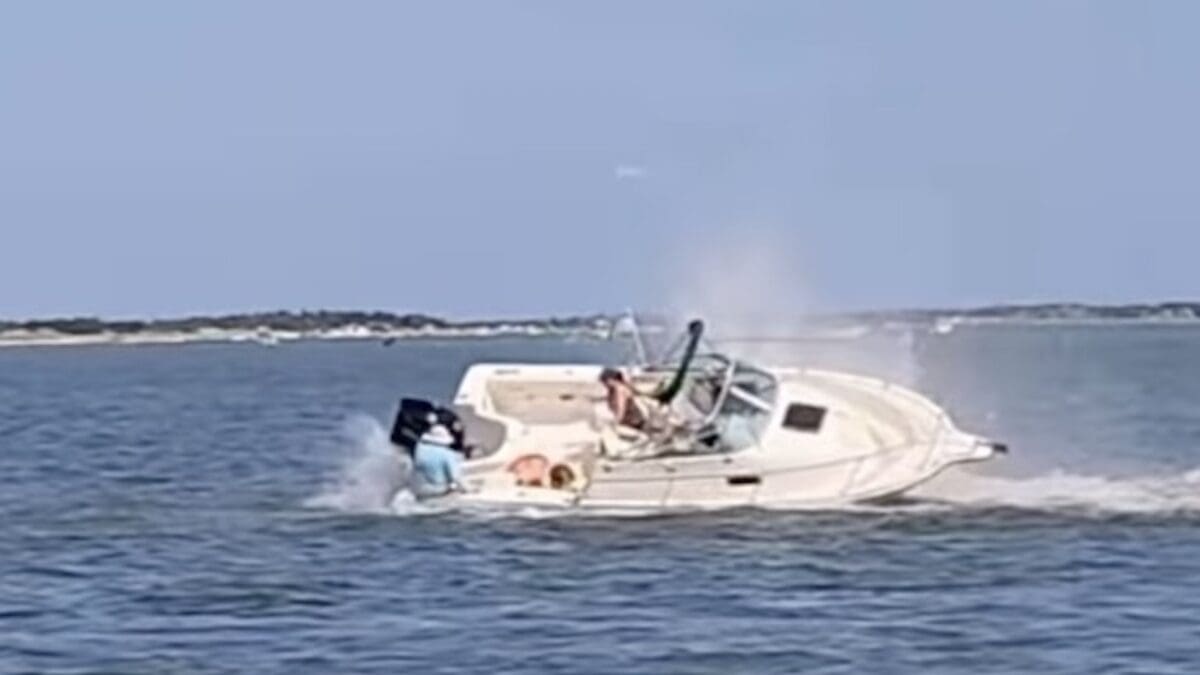On Saturday, August 2nd, 2025, at 2:45pm, the Marine Mammal Stranding Center received a call from the New Jersey State Police Marine Unit about a whale in Barnegat Bay. Tragically within an hour, a vessel struck and killed a Minke whale in the area. The incident nearly capsized the boat and sent one passenger overboard, though there have been no reports of an injury to the person.
Whale Vessel Strike in Barnegat Bay in New Jersey
At 3:40pm, a boater reported that a vessel had struck the whale. The strike caused severe damage to the boat and endangered its passengers, sending one person overboard. Sea Tow officials confirmed the incident killed the whale shortly after. The MMSC Stranding Coordinator joined NJ Fish and Wildlife Conservation Officers to assess the situation. Officials approached the whale, a 20-foot Minke, located on a sandbar in shallow water outside the channel. While the team was able to approach within 30-yards, tidal conditions prevented them from getting any further.
The MMSC coordinated with a nearby New Jersey State Park to tow the whale for a necropsy with Sea Tow’s assistance. Officials expect the procedure, scheduled for August 4th, to take several hours. Once the additional operations are complete, MMSC will share any additional Information on their Media Center and social media platforms.
“Boaters should be advised to use caution in the area north of Double Creek Channel in Barnegat Bay and to keep a minimum of 150 feet away from the whale carcass for your safety. Please report any sightings to the Marine Mammal Stranding Center hotline (609) 266-0538.” – MMSC

Minke Whales
Minke whales are the smallest member of the rorqual family. Males can grow around 9.8 meters and females can grow around 10.7 meters. Common minke whales can be found in oceans all over the world, though they tend to prefer cooler temperatures. They tend to move toward warmer waters in the winter to breed, moving back towards cooler waters in the summer to feed. They’ll eat krill, schooling fish, and larger fish, and they tend to be quite solitary animals.

